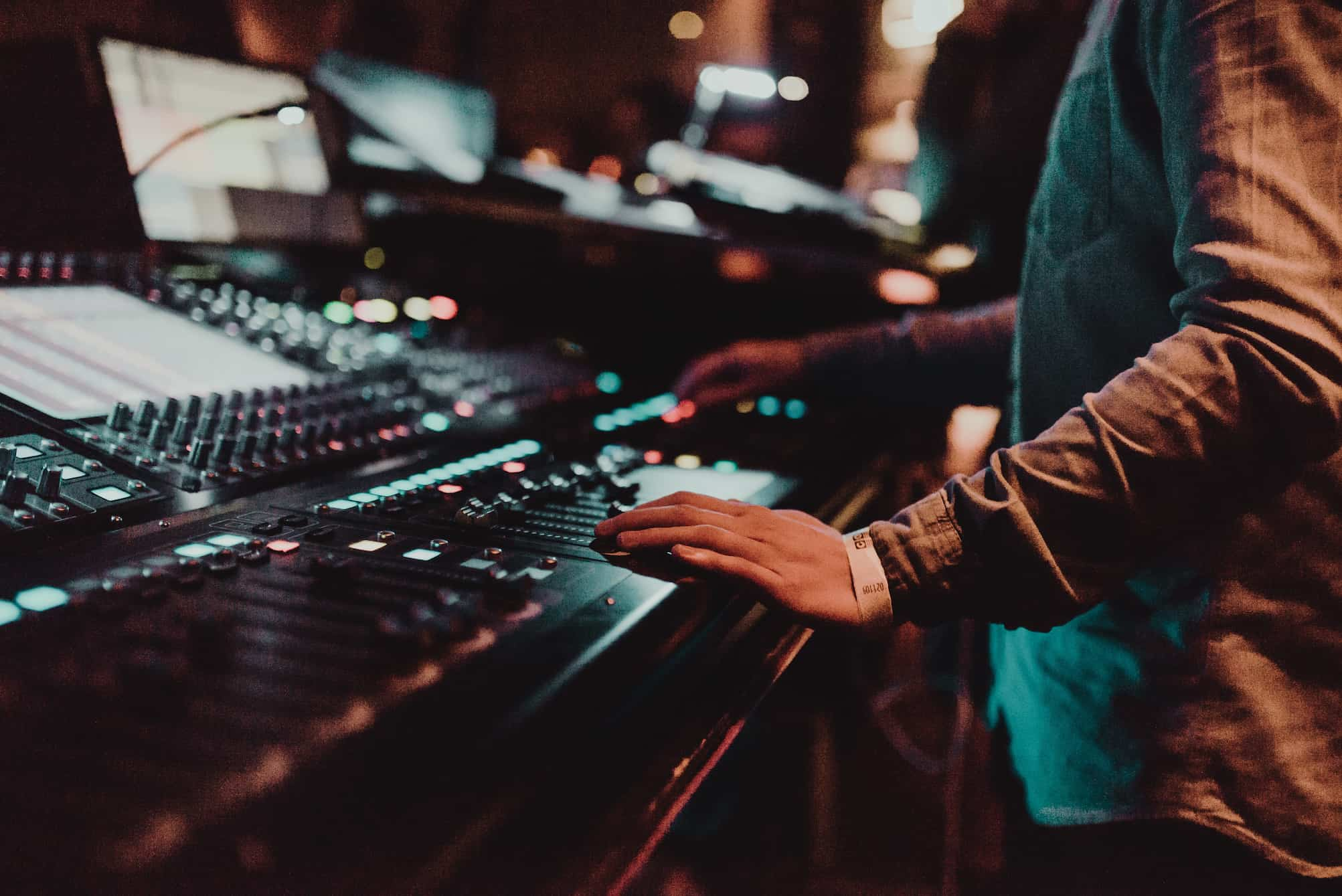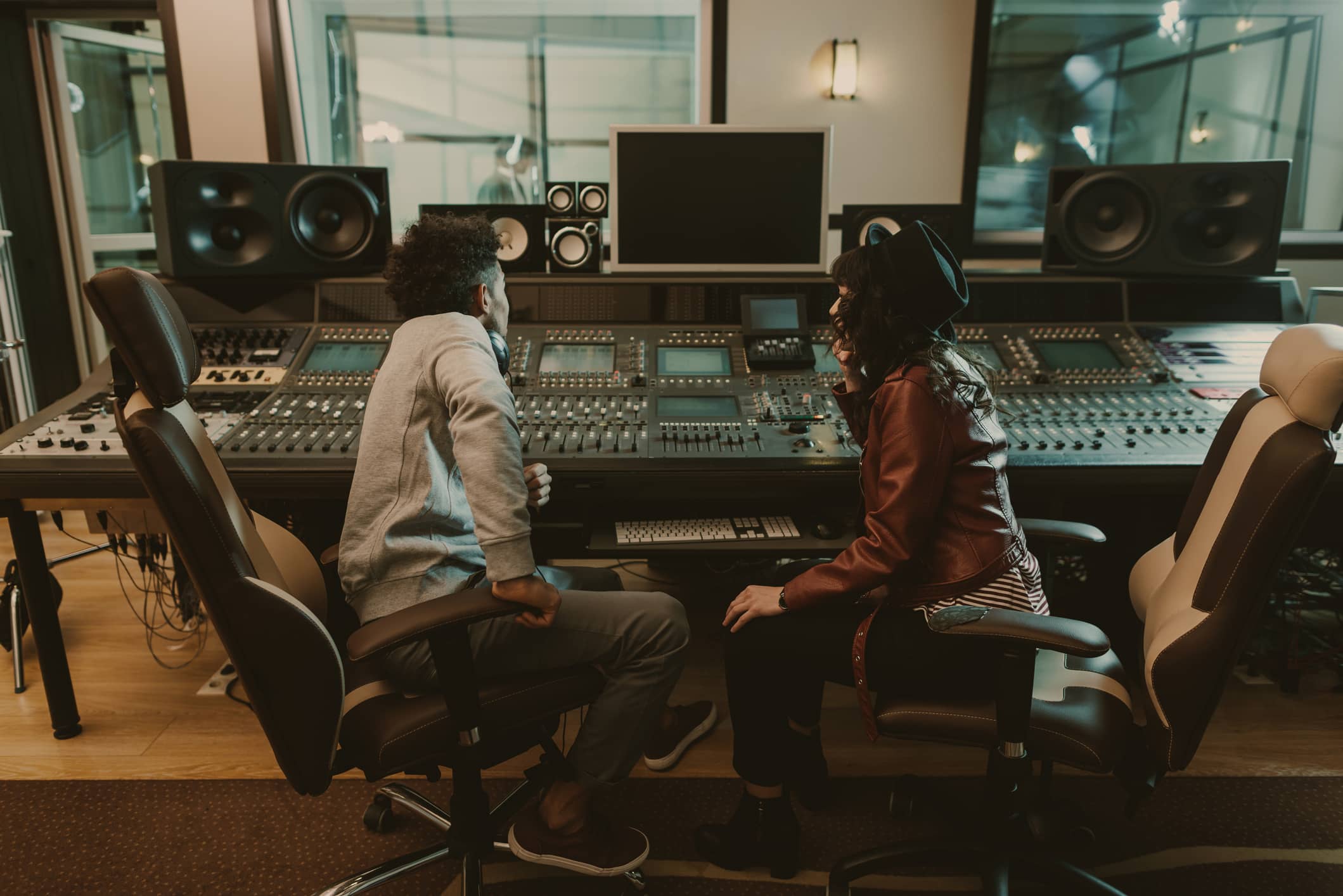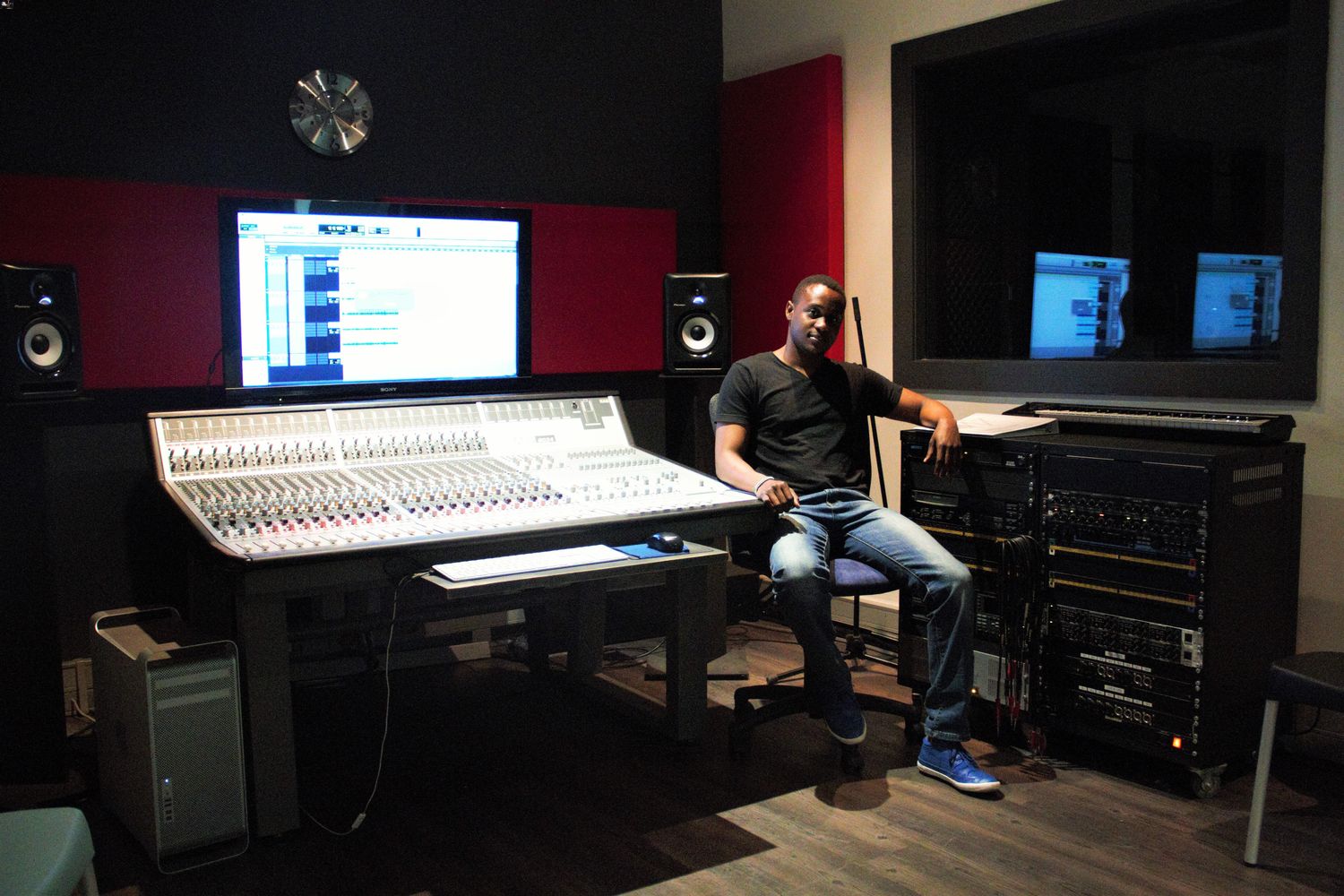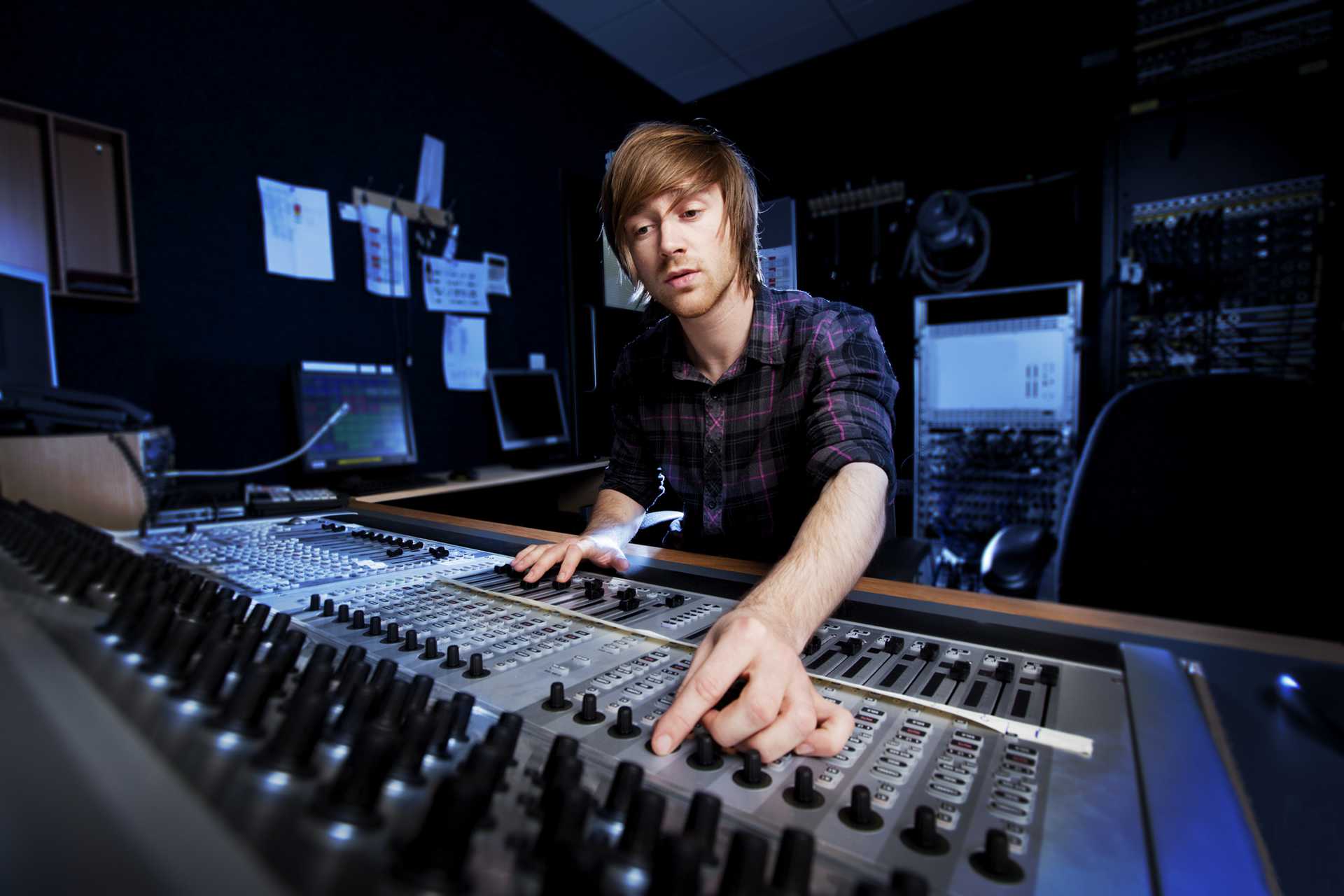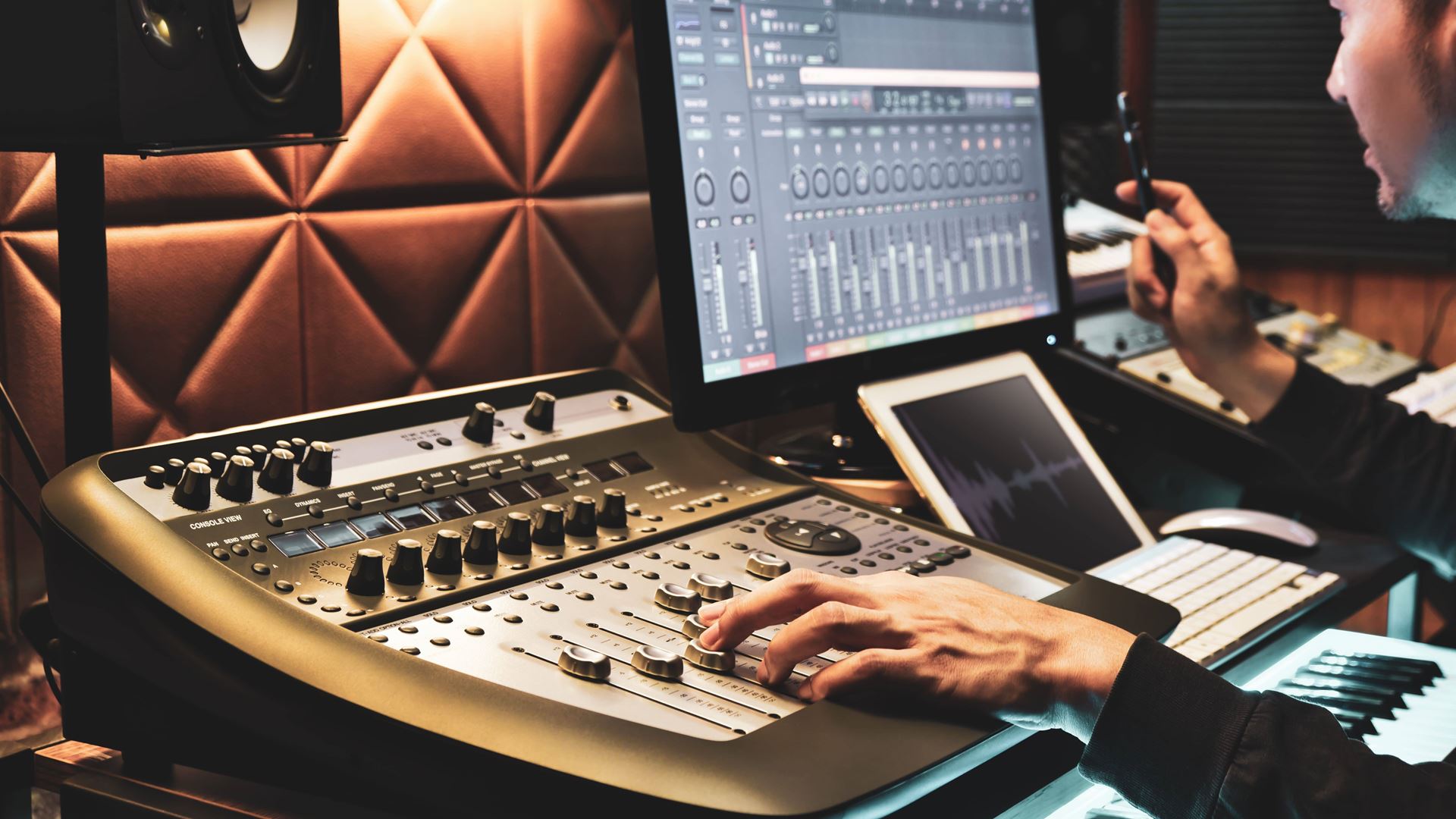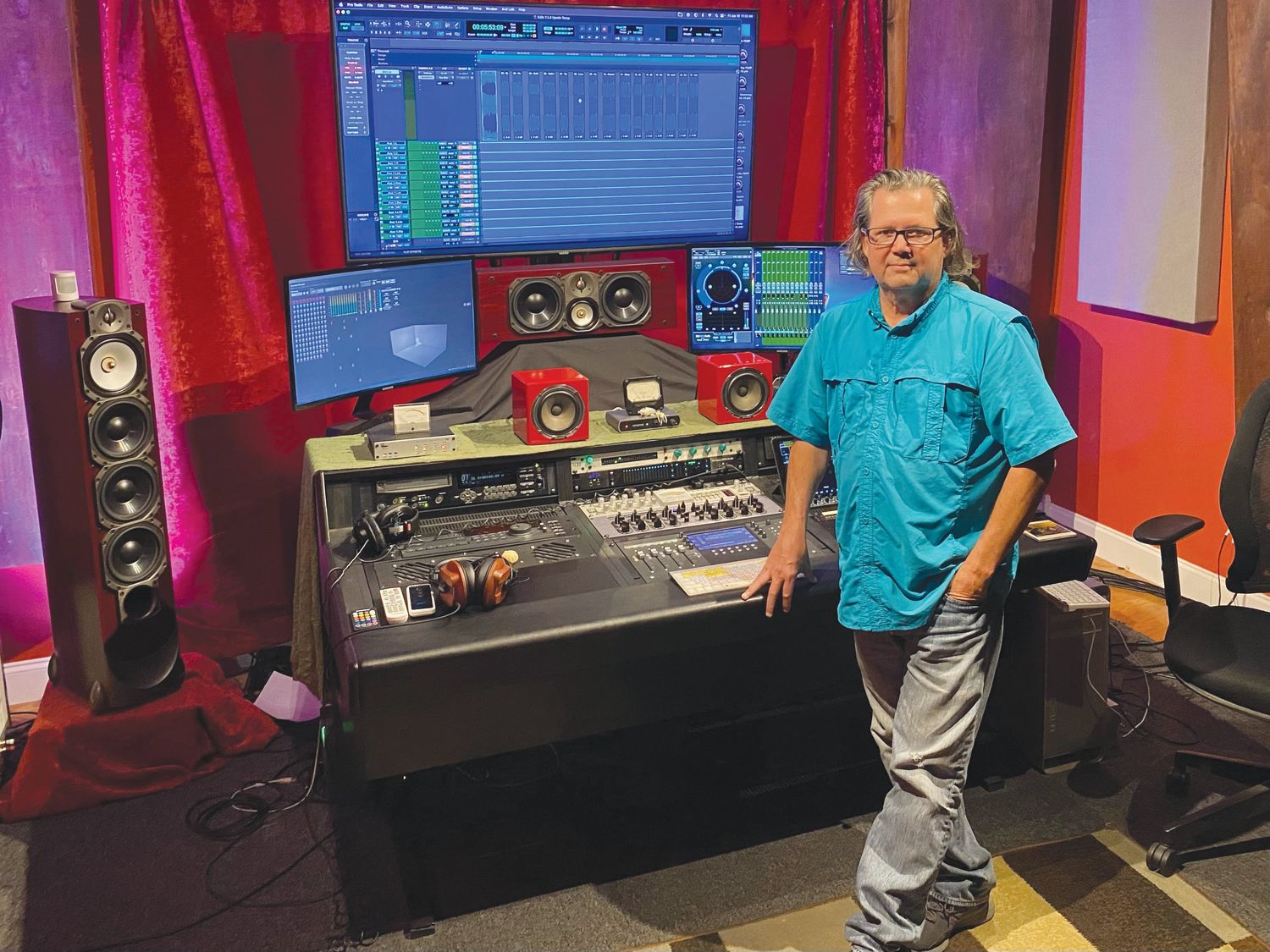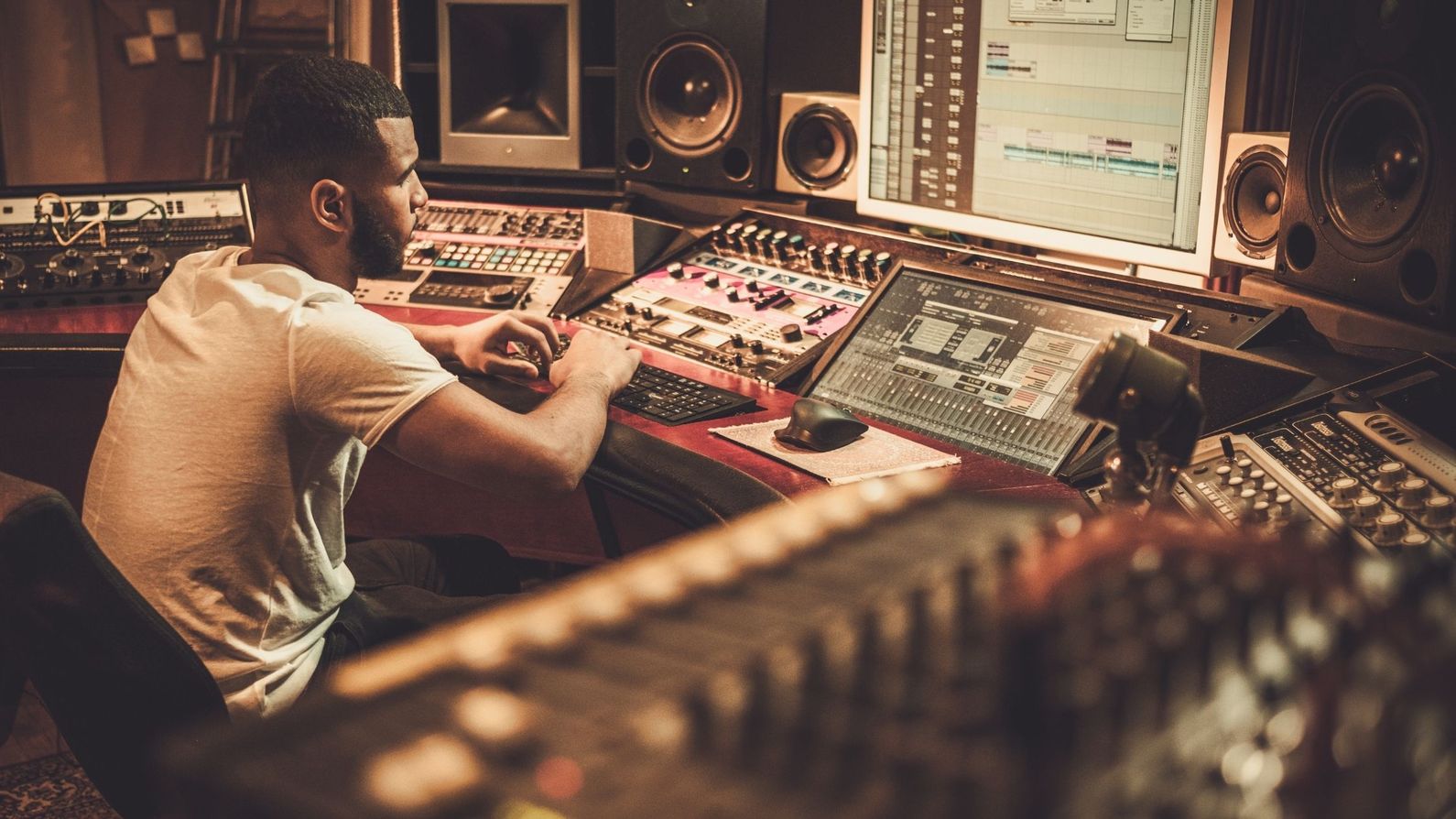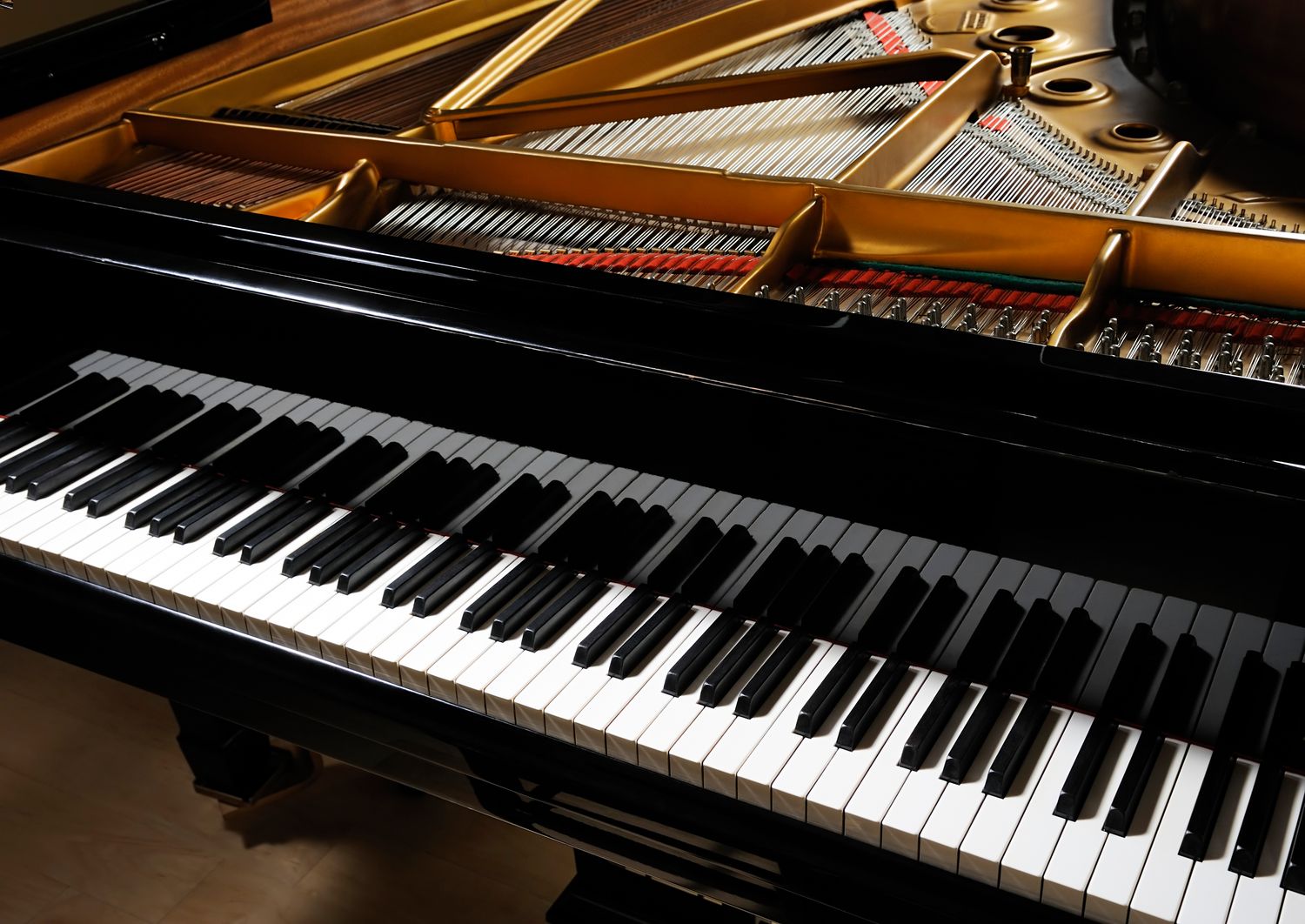Home>Production & Technology>Sound Engineer>What Does A Touring Sound Engineer Make
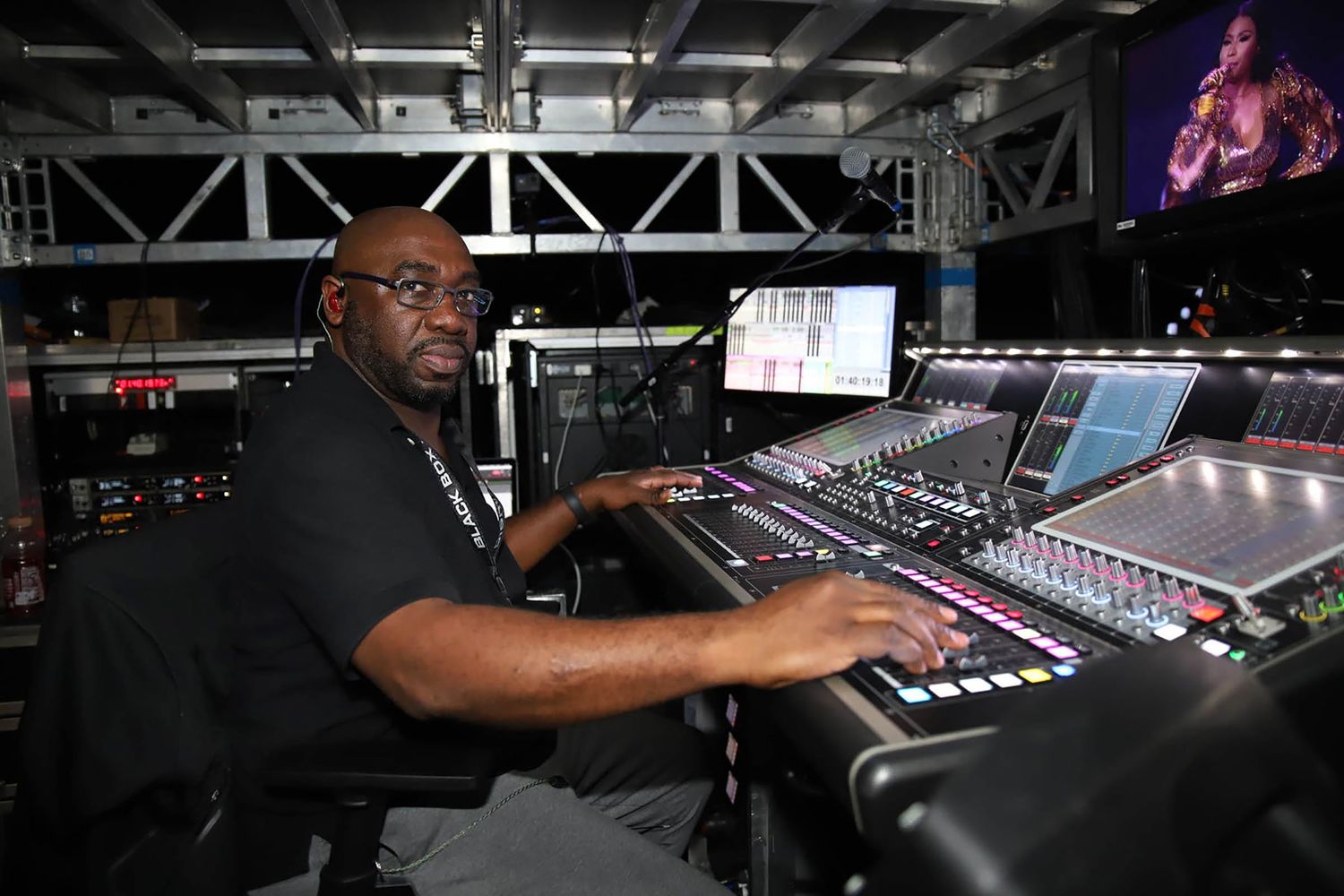

Sound Engineer
What Does A Touring Sound Engineer Make
Published: March 7, 2024
Discover the average salary and factors influencing the earnings of a touring sound engineer. Learn about the potential income in this dynamic field.
(Many of the links in this article redirect to a specific reviewed product. Your purchase of these products through affiliate links helps to generate commission for AudioLover.com, at no extra cost. Learn more)
Table of Contents
Introduction
Being a touring sound engineer is a thrilling and demanding profession that lies at the intersection of technical expertise and artistic expression. These professionals play a crucial role in ensuring that live music performances, conferences, and other events sound impeccable to the audience. They are the unsung heroes behind the scenes, working tirelessly to create the perfect sonic experience for both the performers and the audience.
Touring sound engineers are responsible for setting up and operating sound equipment, mixing and balancing audio, and troubleshooting any technical issues that may arise during a live event. Their expertise extends beyond simply understanding sound equipment; they must also possess a keen ear for audio quality and a deep understanding of acoustics and sound dynamics.
In addition to technical skills, touring sound engineers must also excel in communication and teamwork. They work closely with performers, event organizers, and venue staff to ensure that the audio production meets the specific needs and preferences of the event. This collaborative aspect of the role adds an exciting and dynamic dimension to the work of a touring sound engineer.
The fast-paced and unpredictable nature of live events means that touring sound engineers must be adaptable and quick-thinking. They often work long and irregular hours, especially during tours, and must be prepared to troubleshoot technical issues under pressure. Despite the challenges, the satisfaction of delivering a flawless audio experience to a live audience is what drives many sound engineers in this field.
In the following sections, we will delve deeper into the educational requirements, job responsibilities, salary range, and job outlook for touring sound engineers. Understanding the intricacies of this profession will shed light on the skills and dedication required to thrive in this dynamic and rewarding career.
Education and Training
Becoming a successful touring sound engineer requires a blend of formal education, hands-on training, and a passion for audio engineering. While there is no strict educational path to enter this field, obtaining a degree or certification in audio engineering, sound production, or a related field can provide a solid foundation for aspiring sound engineers.
Many sound engineers pursue a bachelor's degree in audio engineering, which typically covers a wide range of topics including sound theory, acoustics, digital audio technology, and live sound production. These programs often include practical training in recording studios and live sound environments, allowing students to gain valuable hands-on experience with professional audio equipment.
In addition to formal education, gaining practical experience through internships, apprenticeships, or entry-level positions is crucial for aspiring touring sound engineers. Working alongside experienced professionals in live event settings provides invaluable insights into the intricacies of managing sound for different types of performances and venues. This hands-on experience allows individuals to refine their technical skills, develop a keen ear for audio quality, and learn how to troubleshoot common issues that arise during live events.
Furthermore, staying updated with the latest advancements in audio technology and sound production is essential for sound engineers. This often involves attending workshops, seminars, and industry events to learn about new equipment, software, and techniques that can enhance their capabilities in delivering exceptional audio experiences.
While formal education and training provide a strong foundation, the journey to becoming a proficient touring sound engineer is an ongoing process of learning and honing one's craft. The ability to adapt to new technologies and techniques, coupled with a deep understanding of the nuances of live sound production, is what sets exceptional sound engineers apart in this competitive and dynamic field.
Job Responsibilities
As the backbone of the audio production team, touring sound engineers shoulder a diverse array of responsibilities that are integral to delivering exceptional live sound experiences. Their role extends far beyond simply operating sound equipment; it encompasses a multifaceted blend of technical expertise, creative problem-solving, and seamless collaboration with performers and event organizers.
One of the primary responsibilities of a touring sound engineer is to set up and calibrate sound equipment for live events. This involves carefully arranging microphones, speakers, amplifiers, and other audio gear to achieve optimal sound coverage and quality within the venue. The engineer must possess a deep understanding of acoustics and sound dynamics to ensure that the audio production aligns with the unique characteristics of each performance space.
During live events, touring sound engineers are tasked with operating the sound mixing console to balance and enhance the audio output. This includes adjusting volume levels, equalization, and effects processing to achieve the desired sound for each instrument and vocal performance. Their keen ear for audio quality and meticulous attention to detail play a pivotal role in creating a cohesive and immersive sonic experience for the audience.
In addition to technical duties, touring sound engineers serve as the point of contact for performers and event organizers regarding audio requirements. They collaborate closely with musicians, vocalists, and presenters to understand their sound preferences and ensure that the audio production aligns with their artistic vision. Effective communication and the ability to adapt to diverse musical genres and performance styles are essential in meeting the specific needs of each event.
Troubleshooting technical issues in real-time is another critical aspect of a touring sound engineer's role. They must remain composed under pressure and swiftly address any sound-related challenges that may arise during a live performance. Whether it's resolving feedback issues, diagnosing equipment malfunctions, or adjusting sound levels on the fly, their ability to think quickly and decisively is paramount to maintaining a seamless audio production.
Furthermore, touring sound engineers are responsible for coordinating with venue staff to optimize sound reinforcement and ensure compliance with safety and noise regulations. This collaborative effort involves strategically positioning speakers, managing stage monitor systems, and adhering to sound level restrictions to create an immersive yet controlled audio environment for both performers and audience members.
In essence, the job responsibilities of a touring sound engineer encompass a dynamic blend of technical prowess, artistic collaboration, and on-the-spot problem-solving. Their ability to seamlessly integrate technical expertise with creative intuition is what ultimately shapes the sonic landscape of live events, leaving a lasting impression on audiences and performers alike.
Salary Range
The salary range for touring sound engineers can vary significantly based on factors such as experience, location, employer, and the scale of events they work on. Entry-level sound engineers typically start with modest salaries, often ranging from $30,000 to $45,000 per year. As they gain experience and establish a strong track record of successful live productions, their earning potential increases substantially. Mid-level sound engineers with several years of experience can expect to earn between $45,000 and $70,000 annually, while those with extensive expertise and a robust portfolio of high-profile events may command salaries upwards of $100,000 or more.
It's important to note that the nature of live event production can lead to income fluctuations for touring sound engineers. Freelancers and independent contractors often negotiate their compensation on a per-event basis, which can result in varying income levels throughout the year. Additionally, sound engineers working for larger production companies or renowned touring acts may receive comprehensive benefits packages, including health insurance, retirement plans, and performance bonuses, in addition to their base salaries.
The geographical location also plays a significant role in determining the salary range for touring sound engineers. Major metropolitan areas and entertainment hubs, such as Los Angeles, New York City, and Nashville, often offer higher earning potential due to the concentration of live event venues and touring opportunities. Conversely, sound engineers working in smaller markets or regions with fewer live event prospects may find that their salary range is more modest in comparison.
Furthermore, the scale and prestige of the events a sound engineer works on can directly impact their earning potential. Large-scale music festivals, international concert tours, and high-profile corporate events often command higher production budgets, allowing sound engineers to negotiate more lucrative compensation packages. Conversely, smaller local performances or niche events may offer more limited financial rewards.
In summary, the salary range for touring sound engineers is influenced by a myriad of factors, including experience, location, employer type, and the scale of events they are involved in. While entry-level salaries may be modest, the potential for significant income growth exists as sound engineers accrue experience, expand their professional networks, and demonstrate their ability to deliver exceptional audio experiences in the dynamic world of live event production.
Factors Affecting Salary
The salary of a touring sound engineer is influenced by a multitude of factors that collectively shape their earning potential and financial stability within the dynamic landscape of live event production. Understanding these factors is crucial for sound engineers as they navigate their career paths and seek to maximize their compensation in this competitive field.
Experience stands as one of the primary determinants of a touring sound engineer's salary. Entry-level professionals, while essential to the industry, typically command lower salaries as they gain footing in the field and build their portfolios. As they accumulate hands-on experience, develop a track record of successful events, and refine their technical and interpersonal skills, their earning potential grows substantially. Mid-level sound engineers with several years of experience can expect to earn higher salaries, while seasoned professionals with extensive expertise and a history of managing high-profile events often command top-tier compensation.
Geographical location plays a pivotal role in shaping the salary range for touring sound engineers. Major metropolitan areas and entertainment hubs, such as Los Angeles, New York City, and Nashville, often offer higher earning potential due to the concentration of live event venues, touring opportunities, and a greater demand for experienced sound engineers. Conversely, professionals working in smaller markets or regions with fewer live event prospects may find that their salary range is more modest in comparison.
The type of employer also significantly impacts a touring sound engineer's salary. Those working as freelancers or independent contractors often negotiate compensation on a per-event basis, leading to income fluctuations throughout the year. On the other hand, sound engineers employed by larger production companies, renowned touring acts, or established event management firms may receive comprehensive benefits packages, including health insurance, retirement plans, and performance bonuses, in addition to their base salaries.
Furthermore, the scale and prestige of the events a sound engineer works on directly influence their earning potential. Large-scale music festivals, international concert tours, and high-profile corporate events often come with higher production budgets, allowing sound engineers to negotiate more lucrative compensation packages. In contrast, smaller local performances or niche events may offer more limited financial rewards, impacting the overall salary range for sound engineers involved in such productions.
In essence, the salary of a touring sound engineer is shaped by a complex interplay of experience, geographical location, employer type, and the scale of events they are involved in. By understanding these factors, sound engineers can strategically navigate their careers, seek opportunities that align with their financial goals, and leverage their expertise to secure competitive compensation within the vibrant realm of live event production.
Job Outlook
The job outlook for touring sound engineers is inherently dynamic, reflecting the ever-evolving landscape of live event production and the increasing demand for high-quality audio experiences across diverse entertainment and corporate sectors. As live events continue to thrive as a cornerstone of entertainment and communication, the role of touring sound engineers remains integral, offering promising prospects for individuals pursuing careers in this field.
The proliferation of live music performances, festivals, corporate events, and conferences has contributed to a sustained demand for skilled sound engineers who can deliver exceptional audio production. This trend is further amplified by the growing emphasis on immersive and captivating live experiences, where audio quality plays a pivotal role in shaping audience engagement and overall event success. As a result, touring sound engineers are poised to benefit from a steady stream of opportunities within the vibrant and ever-expanding live event industry.
Moreover, advancements in audio technology and sound production have opened new frontiers for touring sound engineers, allowing them to explore innovative approaches to live audio mixing, spatial sound design, and interactive sonic experiences. The integration of cutting-edge audio equipment, immersive sound systems, and virtual/augmented reality technologies into live events presents sound engineers with exciting avenues to elevate the auditory impact of performances and create truly memorable experiences for audiences.
The versatility of touring sound engineers also positions them to thrive in a diverse range of settings, including music venues, theaters, corporate events, broadcast productions, and beyond. Their ability to adapt to different performance spaces, technical requirements, and artistic visions equips them to navigate a broad spectrum of live event opportunities, ensuring a dynamic and multifaceted job landscape.
Furthermore, the global nature of live event production offers touring sound engineers the potential to engage in international tours, music festivals, and cross-cultural events, providing enriching experiences and exposure to a wide array of artistic and technical influences. This global connectivity presents sound engineers with opportunities to collaborate with diverse artists, explore unique sonic environments, and contribute to the rich tapestry of live performances on a global scale.
In essence, the job outlook for touring sound engineers is characterized by a confluence of factors, including sustained demand, technological innovation, diverse opportunities, and global connectivity. As the live event industry continues to flourish, sound engineers are well-positioned to play a pivotal role in shaping the future of live audio production, offering a promising and dynamic career landscape for individuals passionate about delivering exceptional sonic experiences in the realm of live events.
Conclusion
In conclusion, the role of a touring sound engineer is a captivating blend of technical expertise, artistic collaboration, and dynamic problem-solving within the realm of live event production. The journey to becoming a proficient sound engineer involves a combination of formal education, hands-on training, and a relentless passion for delivering exceptional audio experiences. From setting up sound equipment to operating mixing consoles, collaborating with performers, and troubleshooting technical challenges, sound engineers play a pivotal role in shaping the sonic landscape of live events.
The salary range for touring sound engineers varies based on experience, location, employer type, and the scale of events they are involved in. While entry-level salaries may be modest, the potential for significant income growth exists as sound engineers accrue experience, expand their professional networks, and demonstrate their ability to deliver exceptional audio experiences in the dynamic world of live event production.
Factors such as experience, geographical location, employer type, and the scale of events directly influence the earning potential of touring sound engineers. Understanding these factors is crucial for sound engineers as they navigate their career paths and seek to maximize their compensation in this competitive field.
The job outlook for touring sound engineers is promising, reflecting the ever-evolving landscape of live event production and the increasing demand for high-quality audio experiences across diverse entertainment and corporate sectors. As live events continue to thrive as a cornerstone of entertainment and communication, the role of touring sound engineers remains integral, offering promising prospects for individuals pursuing careers in this field.
In essence, the career of a touring sound engineer is characterized by a dynamic interplay of technical prowess, artistic collaboration, and global connectivity, offering a vibrant and multifaceted landscape for individuals passionate about delivering exceptional sonic experiences in the realm of live events.



